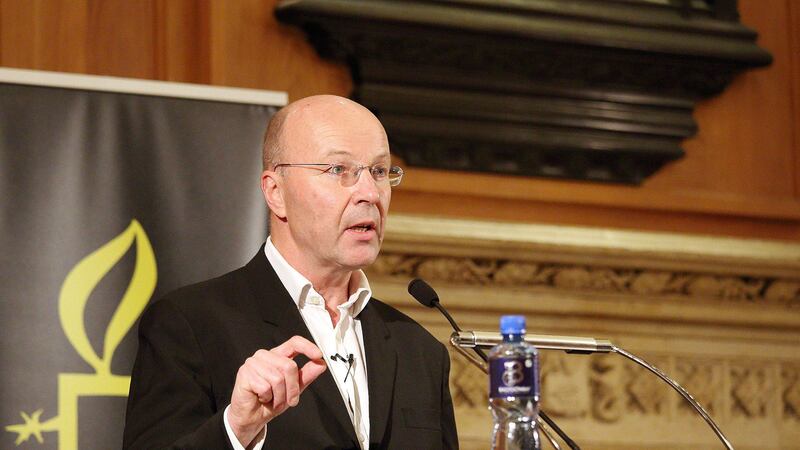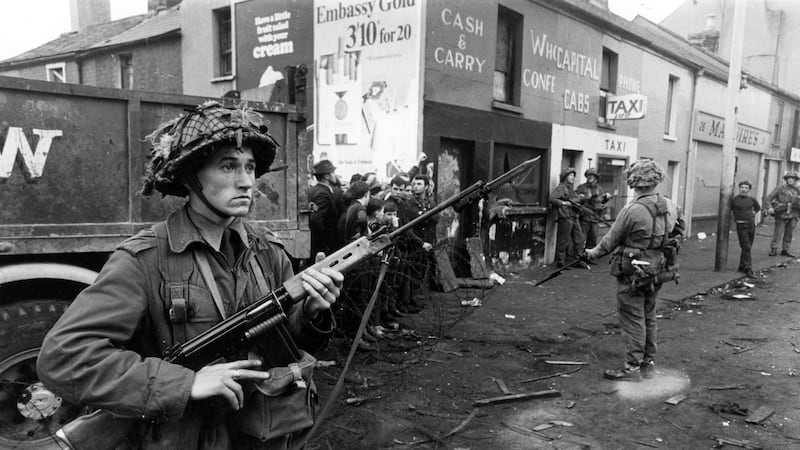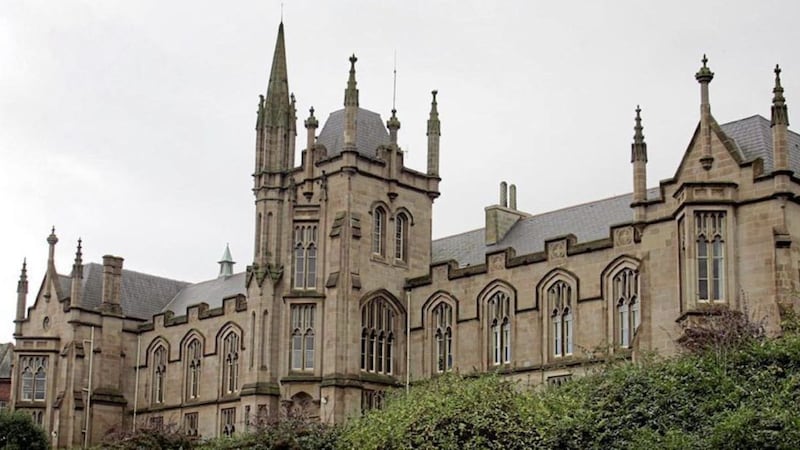AT a time when the First Minister has been photographed standing beside a convicted armed robber who admitted on radio in 2013 to be the Bangor boss of a criminal conspiracy - the UDA - two new books throw light on the origins and operation of government policy which made the UDA the Northern Ireland Office’s favourite terrorist organisation and turned a blind eye to UVF murder gangs.
Ian Cobain’s The History Thieves and Margaret Urwin’s A State of Denial both mined huge piles of official documents to reveal what was going on as Britain disengaged from the empire and how the policies employed in decolonisation were transferred here.
Cobain points out that most politicians posted here in the seventies had experience of military action in World War II but were at a loss to know how to deal with what became known as ‘low intensity operations’.
However, the military they looked to for advice had vast experience of exactly that in Malaya, Kenya, Cyprus and Aden. Indeed some of the senior officers had just left Aden to the Yemenis two years before arriving in the north.
They knew exactly what to do. In the north, as in all those previous theatres, they picked one side and armed them against the other. It wasn’t just collusion: it was collaboration.
Both Cobain and Urwin allow the British government to condemn itself out of the mouths of its own officials in the documents they quote.
When the UDR was expanded in 1972 the Ministry of Defence knew ‘we will be largely arming one section of the community’.
Then again they did that with the Turks in Cyprus and had great fun setting the Chinese and Malays against each other. In all places the group the British collaborated with did the dirty work for them.
In August 1974 after a two-hour discussion between Merlyn Rees’s Permanent Secretary and the UDA and UVF on the future of the UDR, the regiment was expanded into two full-time battalions.
The NIO accepted this decision was exactly what the UDA had proposed. Why not? The UDA was carefully and deliberately kept legal until 1992.
Margaret Urwin shows in NIO and Ministry of Defence documents that the British were well aware of the fact that most UDA weapons came from the UDR but saw no problem in dual membership.
Furthermore a briefing document in September 1976 stated ‘the UDA…denies responsibility for sectarian murders and terrorist bombings or claims them in the name of the UFF, a proscribed and essentially fictitious organisation…’.
In another document Urwin shows a senior civil servant successfully arguing for a licensed firearm for the UDA bodyguard of the UDA leader. After all, why not be consistent?
Urwin’s use of British public records shows how one-sided the military operation was throughout.
Apart from the well-known one-sided use of internment – eighteen months after internment was introduced before the first loyalist was interned – there was one-sided use of screening and searches.
For example, in six months from September 1975 to March 1976 1,994 people were ‘screened’ (arrested and held at least four hours) of whom 118 were Protestant.
Yet during this period 100 people were killed by republicans and 78 by loyalists.
Cobain and Urwin show that those policies, arming one side, internment, screening, mass house searches, community punishment, were all essential components of British policy as they fought colonial wars in the fifties and sixties.
In a previous book Cruel Britannia Cobain described how the interrogation methods and torture perfected in the colonies were used here in the seventies and eighties.
The big difference here is that, unlike the colonies where Cobain shows civil servants, soldiers, MI5 and Special Branch in their hundreds were engaged in systematically destroying literally tons of documents describing the nefarious and inhuman actions of British troops and police, here thankfully the documents survive because the north was part of the UK and the government could hardly destroy its own archives.
Nowadays another difference is that, blindly, naively following tried and tested NIO policy the DUP collaborates with the UDA and UVF in wrecking their own communities. No wonder Margaret Urwin’s book is called A State in Denial.









